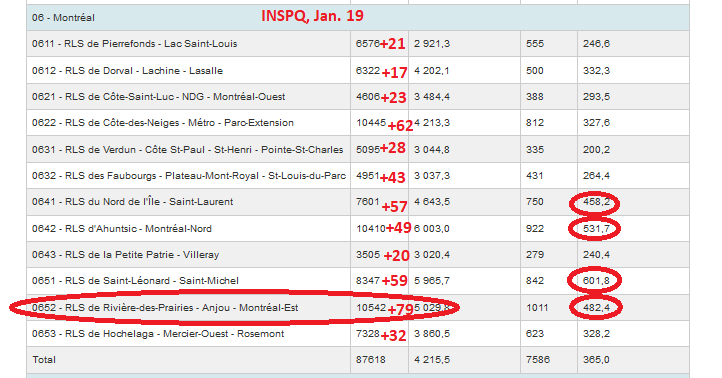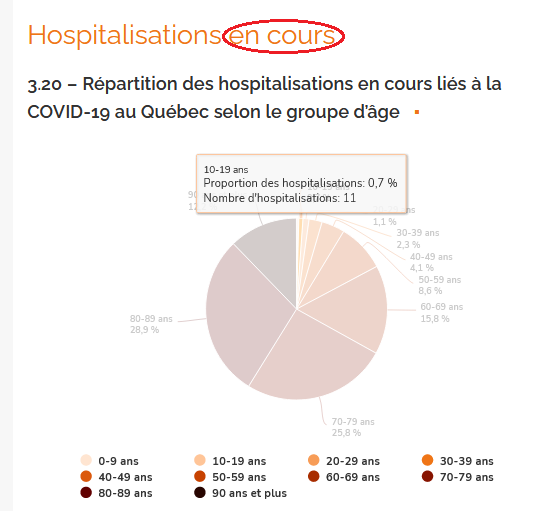
1) Some observers are already suggesting Quebec may be turning a corner in the #pandemic by noting the province has reported three days of declining #COVID19 hospitalizations and a steady drop in active cases. In this thread, I will try to show why this view may be premature.
2) Quebec counted a total of 2,596 people with #COVID19 in the province’s private seniors’ residences and long-term care centres Sunday — one of the highest daily totals in the second wave. Unfortunately, some of these individuals will need to be hospitalized in the coming days.
3) What’s more, the number of active #COVID19 cases (20,636) should not be considered accurate because authorities acknowledged Sunday that a delay in the transmission of data resulted in a drop in the number of new cases declared. This should be corrected by Monday.
4) For these reasons, I am refraining from reporting Quebec’s or Montreal’s #COVID19 case numbers, or the extent of neighborhood transmission of the #coronavirus, because I believe this could give people a slightly skewed impression of what's going on in the city on Sunday.
5) As far as #COVID19 hospitalizations are concerned, Quebec did observe two other three-day drops in the last few weeks. In fact, both of those drops, on Dec. 23 and on Dec. 30, were more substantial than the latest one. We’ll have to wait to see whether this represents a trend.
6) What we can observe is the number of #COVID19 outbreaks in daycares jumped by 11 to 56 on Sunday. And since elementary schools reopened last Monday, authorities have declared three new clusters. What will happen in the weeks to come after high schools reopen tomorrow?
7) Meanwhile, Montreal added 30 more #COVID19 fatalities Sunday to a death toll of 4,084. Just past the halfway mark of January, Montreal has posted 222 deaths, 19 fewer than all of December. For context, the city of Paris’s death toll stands at 2,796, up by one since Saturday. 

8) On Friday, Premier François Legault tweeted that Quebec “continues to do better in the second wave” as he showed a chart comparing the province with other countries. I’ll leave it up to others to comment on the Premier’s observations. 

9) But during this second wave, three more transmissible variants have emerged: in the U.K., South Africa and Brazil. The Centers for Disease Control and Prevention fears the U.K. variant could dominate the U.S. by March. That strain has also been found in Canada. End of thread.
• • •
Missing some Tweet in this thread? You can try to
force a refresh









